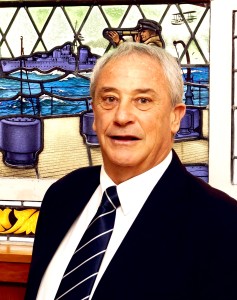Old Boys’
Mr Paul Pottinger | 1987 – 1993 | 2016 – 2019 |
Retired Mr Paul “Potts” Pottinger brought his own unique style into the School Councillors role. His manner is welcoming and non-threatening. An ability to relate to young men and his peers has been appreciated. Mr Pottinger had an innovative coaching style that has produced many successful rugby teams. Numerous boys have had the opportunity to play on Saturday morning in the schools historical ‘cake league’ cricket, which is something Mr Pottinger established. His leadership of Albion and Year 10 Outdoor Education Camps was always entertaining. His cheeky humour and pranks are legendary amongst his peers, as is for his empathy for others. His willingness to be involved in all aspects of school life will be greatly missed.
Before his departure, he left these thoughts for our school community: “When I entered teaching New Zealand still turned the lights out at 9.00 pm on a Friday night. Supermarkets had not been invented and the corner store and local butchery were household friends. The first school rugby team I coached at Marlborough Boys’ College had every parent on the sideline on Saturday morning. Sadly, one cannot say that now. It is not a reflection of the parent’s interest but more so a reflection of the changing nature of our working hours. New Zealand is now open 24/7 and younger people do not know what the 6 o’clock swill was! Just as New Zealand society has changed, the work I undertake as a Guidance Counsellor has altered. I first started in 1987 as the Guidance Counsellor at PNBHS. Common issues were relationship problems, family dynamics, addiction challenges (glue and petrol sniffing were a major local issue), bullying, keeping safe, helping when things went wrong, grief and social maturity around leaving school (leaving age was 15). Now mental health and wellness are big issues, social media and the complications it presents, parenting as well as many of the challenges we faced in the past. I have often been asked why such a dramatic change? I do not believe there is a simple answer to that question. The world of work and entertainment has changed. Parenting styles have changed and accessibility to various forms of entertainment has become much more. Parents can help their sons develop techniques to help them calm themselves. Breathing exercises are a simple way to do this and might be something useful for the whole family to learn – an internet search for relaxing breathing or calm breathing will yield many simple and practical ideas; simply find the one that will work for your son and your family. Learning a calming technique such as this will help your son when he finds himself in stressful situations– sitting a test, job interviews, making a speech – throughout his life. Dr. Ross also stressed the benefits of involvement in co-curricular activities – physical fitness, the development of organisational and time management skills, learning to work with a diverse range of other people, developing social connections (which is an important part of looking after our wellbeing), learning to work as a team for the benefit of the collective group and learning to think about more than just oneself. Have our kids changed or has the world changed? Reflections from Mr. Paul Pottinger, PNBHS Guidance Counsellor 1987-93, 2016-2019. The age of eligibility for some things has altered and social media is readily available for young people. I believe all these elements contribute in some way to the changes I have witnessed in my profession. Kids will be kids and they need to be kids. More importantly, they need parents to be a parent – not a friend! Find the balance between strict and not too strict. Having the time to talk (around a meal table) and sharing time together. Watch your kids grow up and participate in events with them. Share your knowledge, traditions and values with them. Rely on the common-sense factor and innate safety warning system you possess as a parent to help guide your children through the challenges young people face. Encourage them to do things in the local community – weed an elderly neighbour’s garden, mow a lawn for them, help stack firewood. This will help them build perseverance, resilience and they become better people who care for themselves and others. Then we will build a better future!”

